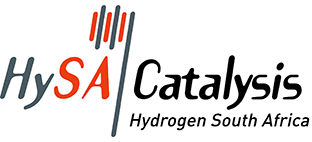Centres of Excellence are awarded by the Department of Science and Technology (DST) through the National Research Fund (NRF). These physical or virtual centres of research are multi-institutional and allow researchers to collaborate across disciplines and institutions on long-term projects that are locally relevant and internationally competitive.
DST/NRF Centre of Excellence in Birds as Keys to Biodiversity Conservation

Visit the FitzPatrick Institute's website.
DST/NRF Centre of Excellence in Catalysis, c*change

- synthesis gas conversion
- paraffin activation
- value-addition to unique olefinic feedstocks
- the underdeveloped small-volume chemicals sector.
Catalysis itself is about chemical transformation, the agents that cause it, the science underlying it, and the engineering of processes to practice it on industrial scale. c*change, however, is about more than science, engineering and technology development in catalysis. Although fundamentally about excellence, it is also about a new and different approach to academic scientific practice in South Africa, and about transformation of the body of South African researchers in terms of the age, gender and cultural profile.
UCT Node of the DST/NRF Centre for Excellence for Biomedical TB Research
The Centre of Excellence for Biomedical Tuberculosis Research (CBTBR) was established in 2004 and is committed to finding solutions to one of the continent's most threatening diseases. Its major objective is to contribute to local and global research efforts that are aimed at developing new tools for controlling tuberculosis and to use the research as a vehicle for training a new generation of high-quality biomedical research scientists. Research is aimed at the development of multidisciplinary approaches for understanding the epidemiology of the disease and identification of novel bacterial and host markers that will shorten the time taken to develop new diagnostic tools.
The UCT Node of the CBTBR is based at the Medical Research Council / National Health Laboratory Service / UCT Molecular Mycobacteriology Research Unit (MMRU) in the Institute of Infectious Disease and Molecular Medicine (IDM).
Centre of Competence
DST Hydrogen Catalysis Competence Centre, HySA/Catalysis

HySA Catalysis, co-hosted by the University of Cape Town (at the Centre for Catalysis Research in the Department of Chemical Engineering) and Mintek, is one of 3 Centres of Competence tasked with the establishment of a technical and scientific base for distinctly South African contributions to global hydrogen and fuel cells technology knowledge. Its mandate includes the components in the early part of the value chain, catalysts and catalytic devices.